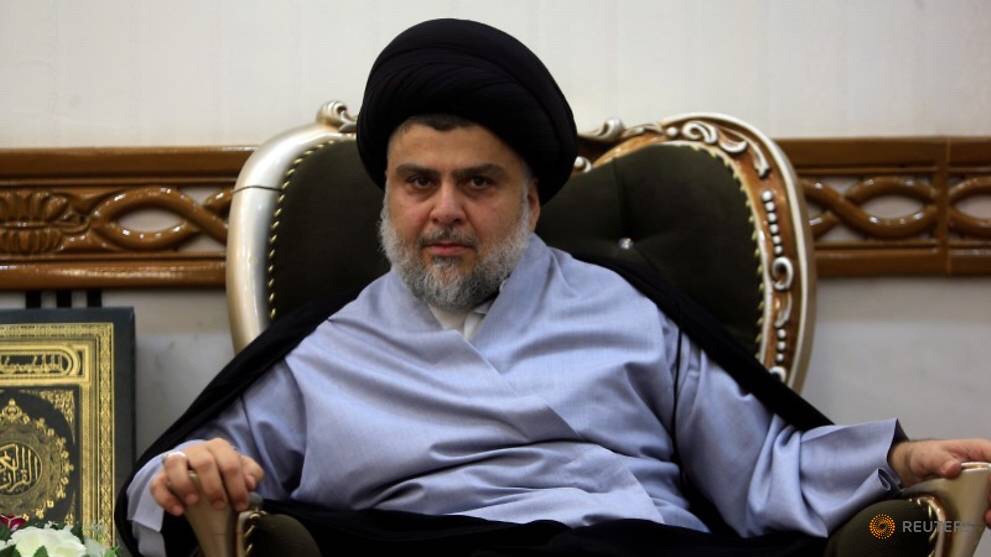Iraqi Shiite cleric Moqtada Al-Sadr in Najaf, Iraq Jun 23, 2018. (Photo: REUTERS/Alaa al-Marjani)
(Updated: 15 Jan 2020 05:50AM)
15 Jan 2020 05:42AM
World
BAGHDAD: Firebrand Iraqi leader Moqtada Al-Sadr called on Tuesday (Jan 14) for a peaceful “million-strong march” against US troops in Iraq, days after parliament urged their departure following Washington’s killing of an Iranian general in a drone strike.
Further upping the pressure on the American deployment, Katyusha rockets on Tuesday night targeted an Iraqi airbase north of Baghdad where US-led coalition forces are based, in the latest attack on American forces in the country.
“The skies, land and sovereignty of Iraq are being violated every day by occupying forces,” Sadr, a populist Shiite politician and cleric, wrote on Twitter.
He urged Iraqis to hold “a million-strong, peaceful, unified demonstration to condemn the American presence and its violations”, without giving a date.
Washington on Jan 3 killed Iran’s revered Quds Force chief Qasem Soleimani in a Baghdad drone strike that also killed a senior Iraqi military official.
The Iraqi parliament responded by voting on Jan 5 to oust foreign forces – including some 5,200 American troops – who have backed the fight against Islamic State militants since 2014.
Bases where US forces are stationed have been under a steady stream of rocket attacks for several months that have killed one American contractor and one Iraqi soldier.
On Tuesday, a new rocket attack targeted the Camp Taji airbase north of Baghdad, the Iraqi military said, without specifying how many rockets hit the base.
Police and medical sources told AFP two Iraqi personnel members were wounded in the attack.
The military instability comes months into mass anti-government demonstrations in Baghdad and the country’s south, condemning politicians seen as corrupt and inept.
The rallies have persisted throughout but shifted to include calls for Iraq to be spared any conflict between Iran and the US.
Iraq has been in political paralysis since the resignation late last year of prime minister Adel Abdel Mahdi, with pro- and anti-Iran factions unable to agree on a candidate to form a new government.
Protesters have rejected the possibility of reinstating Abdel Mahdi.
“The people reject that,” said Hussin Ali Abdul Hussein, a demonstrator in Karbala, south of the capital. “We don’t want to recycle the rubbish, we want a prime minister the public can accept.”
The protest movement and the ensuing crackdown by security forces has left around 460 people dead, mostly protesters.
Activists have faced a campaign of intimidation, abductions and killings.
No comments:
Post a Comment